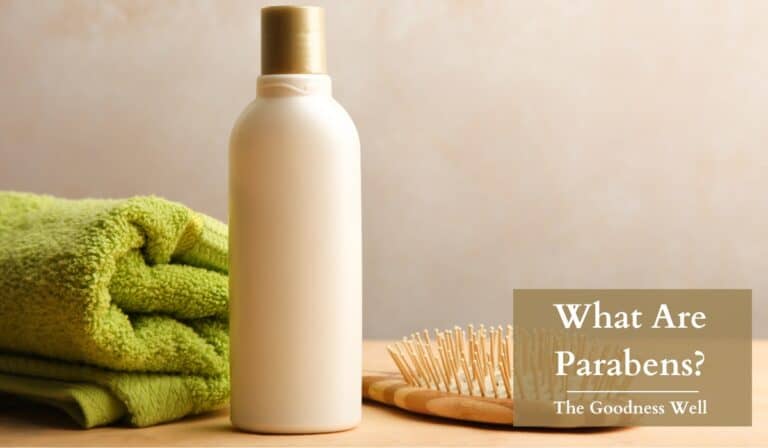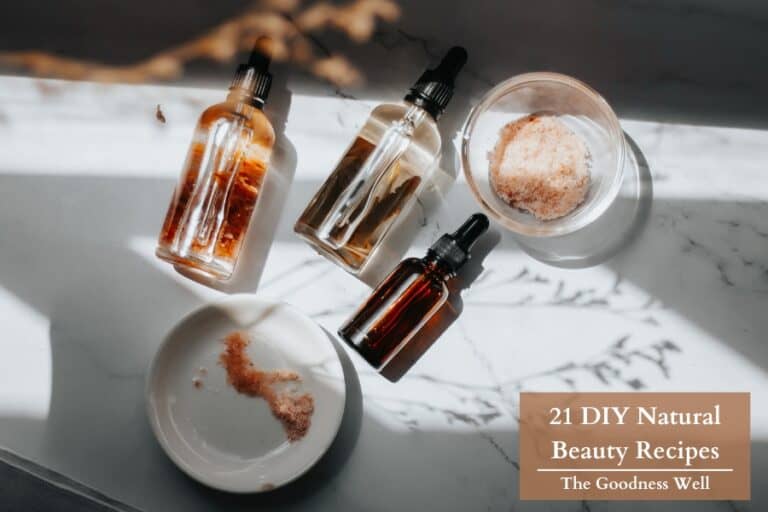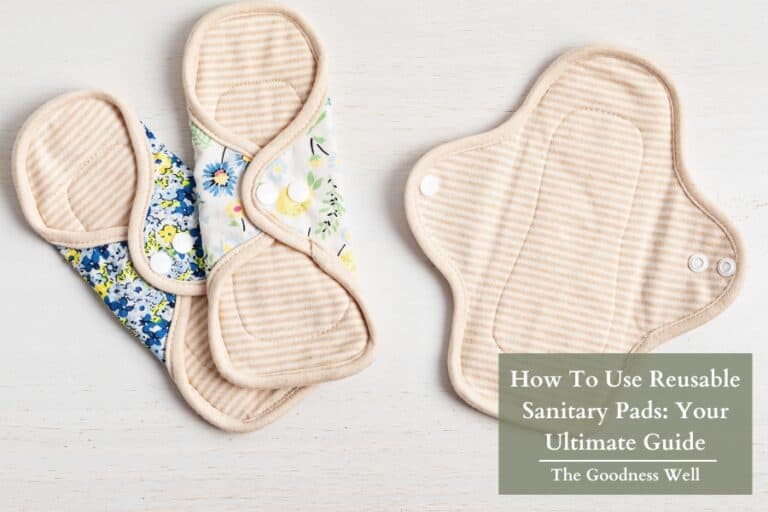Natural vs Synthetic Fragrances | Everything You Need To Know
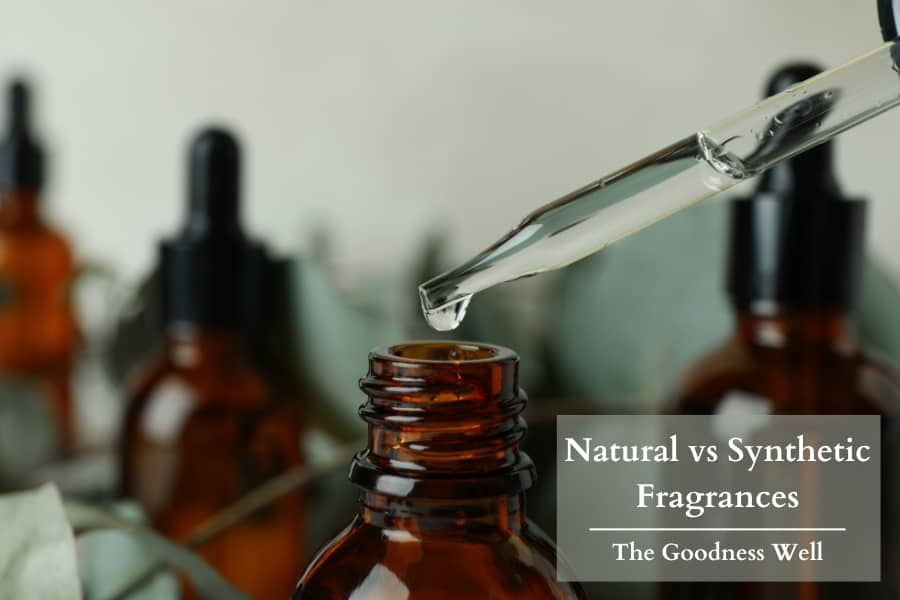
Over the last hundred years, we’ve been exposed to so many smells that we often don’t notice them unless they’re very strong.
But is this a bad thing? Well…first we have to look at the two types of fragrance, natural and synthetic, and examine their ingredients.
And before you assume what you think the better option is, I suggest sticking with me til the end to learn the whole truth about natural and synthetic fragrances.😉
TL;DR
The main difference between natural vs synthetic fragrances is what they’re made from. Natural fragrances are made from plants and other ingredients you can literally find in nature(herbs, wood, fruits, etc…). Synthetic fragrances are made from petroleum, natural gas, or other synthetic processes. Natural fragrances are safer than synthetic fragrances but the chances of having allergic reactions to natural ingredients are still there. It’s best to choose fragrance-free products but if you do want a little scent in some of your products, look for natural fragrances with all its ingredients disclosed on the label.
The Breakdown Of Fragrance
When I say fragrances are everywhere… I almost mean that literally. Think about a product you either use in your hair, your skin, or even clean with. Chances are they all have fragrance in them.
Items that most commonly contain fragrances:
- Personal Care Products: lotions, shampoos, soaps, sunscreen…
- Beauty Products: makeup items (e.g., foundations, powders, blushes, and lipsticks)
- Home Care Products: Air fresheners, scented candles, dishwashing liquids, cleaning supplies, scented trash bags, and deodorizer…
- Health and Wellness Products: Herbal remedies, supplements, massage oils, aromatherapy products
- Automotive Products: car air fresheners and cleaners
- Toys: Scented playdough or slime
- Pet Products: pet shampoos, litter box deodorizer
…and much much more…
Natural Fragrances
Imagine the sweet smell of a rose or the refreshing scent of lemon. That’s what natural fragrances are—all those lovely smells we get directly from nature. They come from plants, flowers, fruits, woods, and sometimes even animal products.
These smells are taken straight from the source, like squeezing oil from a flower or a fruit peel.
They’re made using different methods such as…
- Distillation: Like making steam from plants and then cooling it down to get the smell out.
- Cold Pressing: Squishing citrus peels to get the zesty oils.
- Solvent Extraction: Using a liquid to pull out the scent from flowers.
- Enfleurage: Pressing flowers into wax to soak up their smell.
- Maceration: Warming up plants in fat to get their fragrance.
What makes them a great option is the natural benefits like improved skin health.
But like with most things there are a few drawbacks…
Just because a product or fragrance comes from natural ingredients doesn’t mean you won’t have an allergic reaction. You could be allergic to a natural ingredient as well.
The good part is that with products using natural fragrances, you’ll most likely get a full ingredient list so you’ll know what’s in it before you buy.
You may also find it hard to get a natural scent similar to a synthetic fragrance that you’re used to. For example, the natural smell of rose petals is very different than a highly processed synthetic rose-scented bath & body works candle…
And lastly, sometimes products with natural fragrances especially organic, can be more expensive and harder to find in stores. This can be because of ingredients sourcing and natural farming seasons.
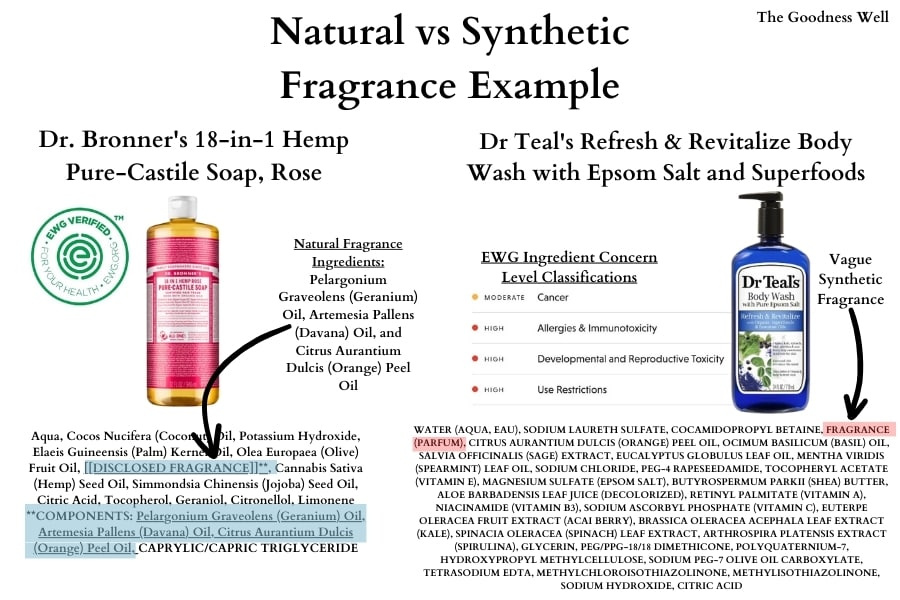
Synthetic Fragrances
Synthetic fragrances are scents made in a lab, not plucked from nature. They can mimic natural smells—like that rose or lemon—or create entirely new scents that you won’t find in nature. These scents start as chemical compounds derived from petroleum, natural gas, or other synthetic processes.
Why Make Scents in a Lab?
Synthetic fragrances smell the same every time you use them. Nature can be a bit unpredictable, but making them in a lab keeps them more consistent. Scientists can make new scents that don’t exist anywhere else like the beloved “pumpkin spice” and “tropical paradise”.
Not to mention, making scents in a lab means not having to wait for a flower to bloom or a fruit to ripen. It’s also usually cheaper to make these scents than to extract them from natural sources.
But, Wait, There’s a Catch
Synthetic scents can irritate your skin, and cause allergies, headaches, or even more serious health issues. They often contain harmful chemicals without disclosing much information. There are 3,163 chemicals classified under the term “fragrance” (used for synthetic fragrances).
The Environmental Working Group states that “Of the 3,163 chemicals listed, several stand out as particularly toxic: phthalates, octoxynols, and nonoxynols. Phthalates are potent hormone disruptors linked to reproductive system birth defects in baby boys. Octoxynols and nonoxynols break down into persistent hormone disruptors…”
Synthetic fragrances may be cheaper, have more options, and be more convenient but they certainly aren’t the safest!!
Clearing The Air on Essential Oils
In short, essential oils are concentrated natural oils extracted from plants, capturing their scents and beneficial properties in liquid form.
Essential oils can be organic or natural. Organic essential oils are made from plants grown without synthetic pesticides or fertilizers, while natural essential oils come from plants that might not be organically farmed.
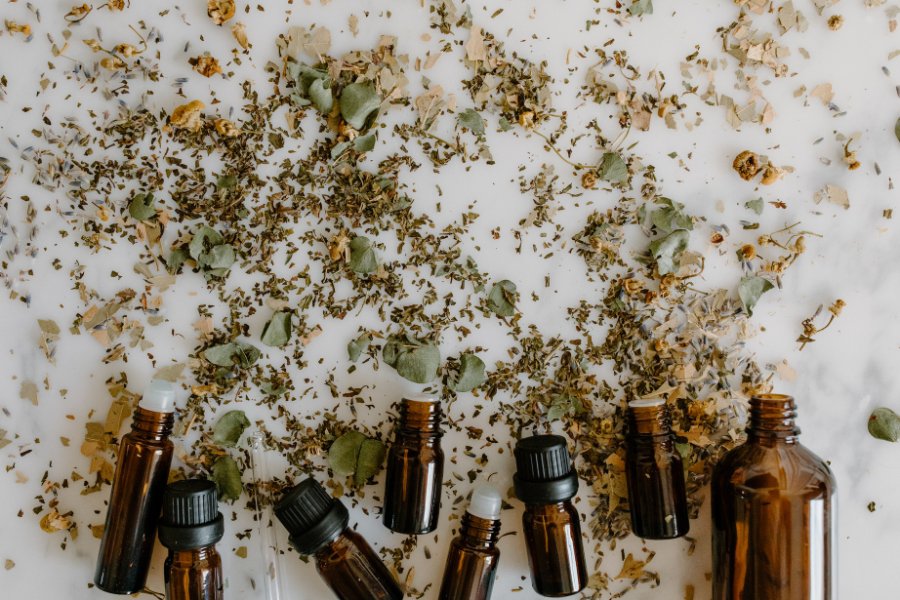
Now don’t confuse essential oils with perfumery, as many people do. Perfumery oils are a blend of synthetic scents and sometimes natural oils, created to mimic specific fragrances.
When considering if you should, use essential oils (even organic ones) I would consider a statement made by Kate Grenville author of The Case Against Fragrance.
In an interview, when asked if it’s better to use essential oils she stated, “Essential oils are better because they’re made from 100% natural sources …But nature intended us to smell a rose, not 4,000 roses squished up and distilled all at once.”
So while natural essential oils are a great option, use them with discretion and in well-ventilated areas, and always choose pure and organic ingredients.
Remember they’re concentrated so it’s better if they’re used with other substances like mixed in soaps and lotions.
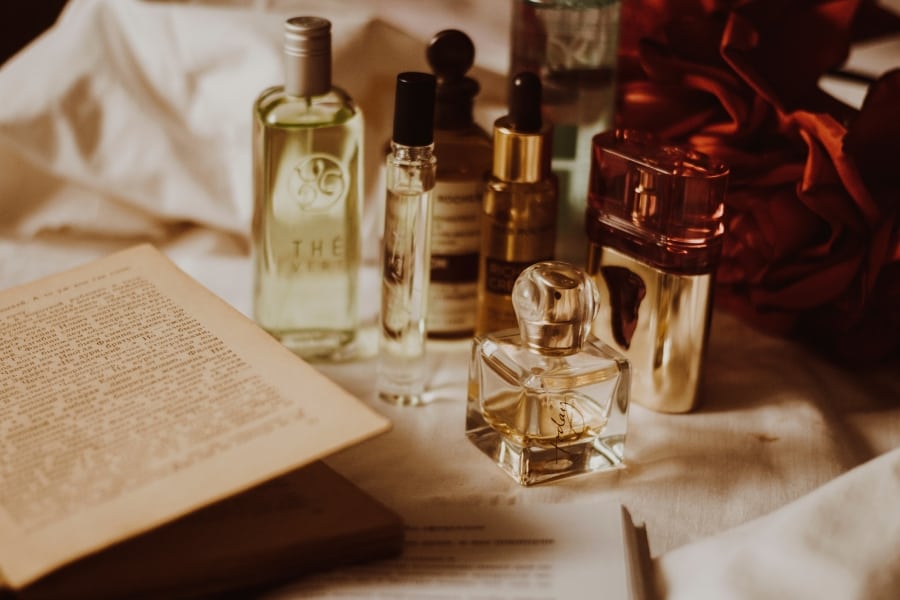
Alright, So Which One Is Better?
In terms of better, natural fragrance is the better option but the BEST option is neither. If you can adapt(this takes time) your nose and your mind you can grow away from your need to use fragrances all the time.
From the moment the first fragrances were made 4,000 years ago in Mesopotamia, our noses have become accustomed to constant scents and perfumes.
But as our fragrances have become more and more synthetic and loaded with harmful chemicals, we need to be more aware of our choice to include fragrances in so many aspects of our lives.
When you do choose to use them use fragrances made from natural and even better organic ingredients….but remember limiting your use of fragrance all together is your BEST option.
Frequently Asked Question
Not necessarily. While natural fragrances are derived from plants and can be gentler, they might also cause allergies in some individuals. It’s about finding what works for you.
Look for the botanical name of the plant from which the fragrance is derived in the ingredients list. Terms like “parfum” or “fragrance” typically indicate synthetic ingredients.
Unscented” products may contain chemicals to mask natural odors, while “fragrance-free” means no fragrances have been added at all.


